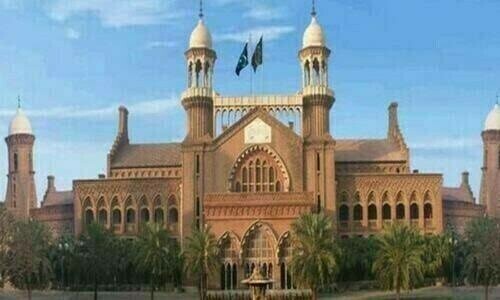BENGHAZI has served as the locale for crucial conflicts in the battle for Libya for more than three years now, and last Friday it returned to the headlines as a seemingly well-coordinated military force took on Islamist militiamen, resulting in at least 70 deaths, before mounting an assault against parliament in Tripoli.
The Libyan authorities, for whatever they are worth, denounced the latter operation as a coup attempt. If it could indeed be described as such, it is far from clear whether it has failed.
The apparent guiding force behind it was Khalifa Belqasim Haftar, whose colourful past raises a host of intriguing questions, not least in the context of the United States’ continuing embroilment in a country where it intervened to guarantee regime change in 2011.
Haftar was among the military personnel who backed Colonel Muammar Qadhafi’s 1969 coup and went on to hold senior posts in the army. He was commanding Libyan forces in Chad in the late 1980s when he was taken prisoner, and effectively disowned by the mercurial colonel.
He eventually ended up in the US, where he was based in Langley, not far from the CIA’s headquarters in Virginia, and became chief of the military wing of the anti-Qadhafi National Front for the Salvation of Libya. In 2011, he returned to Libya as a rebel commander, playing second fiddle to another former Qadhafi ally, Abdel Fatah Younis, but fading from the political scene after Younis was killed.
There may be more to developments in Libya than we think.
Haftar has denied allegiance to the CIA, but laid claim in the past to US backing. Washington Post cites Ali Aujali, a former Libyan ambassador to the US who backed the 2011 uprising, telling CNN the same year that “the Americans know [Haftar] very, very well”, before adding: “I think working for the CIA for the sake of your national interest is nothing to be ashamed of.”
Some months before Haftar resurfaced this February with a diatribe against then-prime minister Ali Zeidan’s ineffective administration, he was named in a New York Review of Books blog by Nicolas Pelham as a potential strongman who “appeals to those nostalgic for the old order. After abandoning his men in the Sahara [in 1987], he fled to Virginia and, backed by the CIA, schemed with little apparent success to usurp Libya’s crown”.
It does not necessarily follow, of course, that Haftar’s Libyan National Army enjoys American backing in its current endeavours, which are purportedly aimed at propelling elections rather than assuming power. There is circumstantial evidence, though, that there may be more to the latest developments than meets the eye.
For instance, following Sunday’s attack on parliament in Tripoli, Mokhtar Fanana, a military police commander allied with Haftar appeared on a Libyan TV channel to say: “We announce to the world that the country can’t be a breeding ground or an incubator for terrorism.”
That’s a worthy sentiment, but it sounds like it could have been drafted by the State Department — which is still reeling from a domestic backlash over the murder of the US ambassador to Libya in Benghazi on Sept 11, 2012, at the hands of a jihadi militia effectively empowered by the previous year’s Nato intervention that toppled Qadhafi.
And, as Tom Dispatch’s Nick Turse reported last month, the US has lately undertaken to train thousands of Libyan conventional troops as well as “counterterrorism forces” at a facility in Bulgaria, as part of a four-phase process to “build a complete Libya security sector”.
Meanwhile, there’s an almost throwaway reference in a recent Guardian report about the fact that “drones have been much in evidence in Libya’s skies this past week”.
The same report quotes the European Council for Foreign Relations as commenting: “With reliance on Russian energy now in question across Europe, the EU cannot afford to have a failed state crucial to energy security and to stemming illegal trafficking 350km south of Malta and Lampedusa.” It’s telling that the European Union’s concern about Libya focuses on its status as source for oil and a conduit for African refugees.
Even so, perhaps such factors ought to have received greater attention before the West enthusiastically leapt into the Libyan fray. Qadhafi’s miserable misrule was no doubt an extended travesty, but the anarchy unleashed by his cruelly enforced departure — which, according to the United Nations has helped to fuel 14 separate conflicts in the region — could hardly have come as a complete surprise.
Whether or not Haftar’s latest intervention enjoys US sponsorship, it may well intensify the simmering civil war, and there’s no guarantee it can prevent Libya from fracturing, indefinitely blighting life across the country and producing repercussions that echo from Syria to Mali, and beyond.
Published in Dawn, May 21st, 2014












































Dear visitor, the comments section is undergoing an overhaul and will return soon.